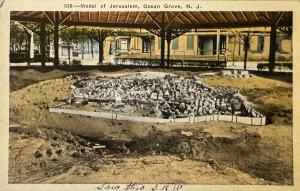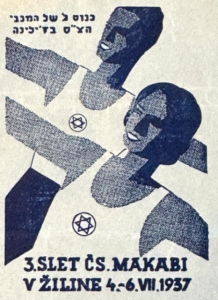Pinhas Rutenberg (1879-1942) expended almost as much personal energy in the development of the Land of Israel as the energy generated by the electrical power plants he introduced to the area.
Born in Ukraine, Rutenberg immigrated to Palestine in 1919, after studying hydraulic engineering in Italy. With the outbreak of the First World War, together with Ze’ev Jabotinsky and Joseph Trumpeldor, he founded the Jewish Legion of soldiers who fought with the Allies. Later, he helped found the American Jewish Congress and was involved with the establishment of the Haganah paramilitary defence organization and Palestine Airways (which was taken over by the British in 1937).
In 1921, he founded the Jaffa Electrical Company, which built the first electricity generating plant in Jaffa, a diesel-fueled facility which also provided electricity to Tel Aviv and nearby communities. Two years later, he started the Palestine Electric Company (now the Israel Electric Corporation) which supplied power to all of British Mandate Palestine, and built the first hydro-electric plant in the Middle East at Naharayim.
On Aug.1, 1925, the British Mandatory Government passed the ‘Palestinian Citizenship Order’ which determined who was entitled to be a citizen of Palestine. Rutenberg was given the honour of being the first registered citizen under the new law.
You might say that Rutenberg was Zionism’s Forrest Gump. In 1919, he was part of the Zionist delegation to the meetings in Paris that resulted in the Treaty of Versailles. In 1934, he helped to mediate between David Ben Gurion and Ze’ev Jabotinsky to reconcile the disputes between the Labor and Revisionist factions of the Zionist movement. After 16 meetings in London an agreement to heal the rift was signed, but was rejected by a referendum of the Labor party. He twice served as the president of the Va’ad Leumi, the Jewish National Council that was the main national executive body of the Yishuv, the Jewish community in Palestine prior to independence.
This is an advertisement for the Jaffa Electric Company in Mischar Vetaasia, the Land of Israel Economic Magazine, from March 31, 1925. The themes of Power, Light and Heat could describe the situation in Israel today, 100 years later. We have certainly seen a display of power. Israel is subject to much heat. Is there light? Let’s hope so. If not, hopefully a new Pinhas Rutenberg will soon emerge to give us some.







